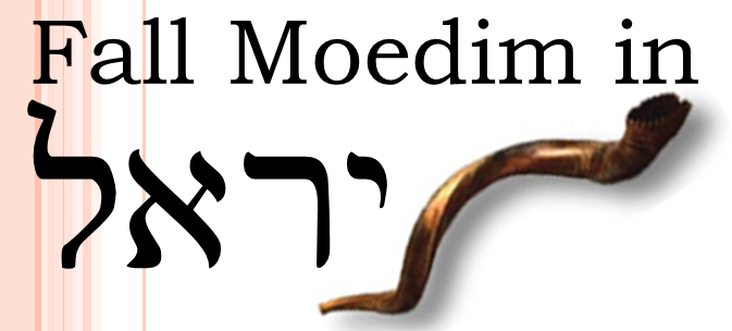The following observations are intended to spark dialogue and act as food for thought.
So, we are through the biblical Spring feasts for this year and are heading into Summer. It is a common assumption that the Summer time frame is where we as believers are right now in Yahweh's eternal timeline. So, now is a good opportunity to begin looking forward to what is on Yahweh's calendar next. Each year we observe three additional set apart times (moedim) that are generally referred to as the biblical Fall feasts; these include Yom Teruah, Yom Kippur, and Sukkot.
With just a little digging one can find the themes and outright reference to these three set apart times throughout the entirety of scripture. However, this discourse is going to focus on prophetic book of Joel. Each of the verses discussed below seems to clearly refer to one or more of the Fall moedim and demonstrate the relationship with the set apart time to end-times prophecy.
This post will only look at Joel Chapter 1. There are probably references in Chapter 1 that won't be covered here so feel free to make mention of anything you feel was missed in the comments section.
So, we are through the biblical Spring feasts for this year and are heading into Summer. It is a common assumption that the Summer time frame is where we as believers are right now in Yahweh's eternal timeline. So, now is a good opportunity to begin looking forward to what is on Yahweh's calendar next. Each year we observe three additional set apart times (moedim) that are generally referred to as the biblical Fall feasts; these include Yom Teruah, Yom Kippur, and Sukkot.
With just a little digging one can find the themes and outright reference to these three set apart times throughout the entirety of scripture. However, this discourse is going to focus on prophetic book of Joel. Each of the verses discussed below seems to clearly refer to one or more of the Fall moedim and demonstrate the relationship with the set apart time to end-times prophecy.
This post will only look at Joel Chapter 1. There are probably references in Chapter 1 that won't be covered here so feel free to make mention of anything you feel was missed in the comments section.
(Joel 1:14 HRB)
Set apart a fast; call a solemn assembly; gather the elders, all those living in the land, into the house of YAHWEH your Elohim, and cry to YAHWEH.
It is not a stretch to see Yom Kippur exemplified in the verse from Joel 1:14. For reference see the following verses:
- Leviticus 16; special focus on verses 29-31
- Leviticus 23:26-32
- Numbers 29:7-11
- Isaiah 58:1-12
(Joel 1:15 HRB)
Alas for the day! For the day of YAHWEH is at hand. And it shall come as a destruction from the Almighty.
It is not hard to see Yom Kippur in Joel 1:15 as well. In Jewish tradition Yom Kippur is the most solemn day of the year. In fact, it is often referred to simply as "The Day" which can be seen in the first words of verse 15. Additionally, Joel 1:15 talks about the judgement to come. Yom Kippur is a picture of judgement and redemption when you read through Leviticus 16. The following is an excerpt from a March 1979 publishing of Ministry Magazine.
Never was there a better parable of the great judgment day than on this occasion. For one time during the year the whole of Israel ceased all worldly activities to stand penitentially before the Most High. Their only hope lay in the blood sprinkled by the priest, their representative and mediator. Any who did not join in fasting and prayer were "cut off," and as the goats for Jehovah and Azazel became the center of attention, all the worshipers asked themselves, "To which of these opposing supernatural powers am I reckoned as joined this day?" Would one be accounted among "the seed of the woman" or "the seed of the serpent"? Was one to be numbered with Abel, or with Cain; with those who call on the name of the Lord, or those who by their lives despise Him? Each worshiper, though standing in a great assembly, found himself alone as he pondered whether he would be sealed for life or for death.
https://www.ministrymagazine.org/archive/1979/03/yom-kippur-and-judgment-day
Another observation from Joel 1:15 is the reference to the Day of Yahweh. In traditional parlance this may be referred to as The Day of the LORD. There are proponents for this being a reference to Yom Teruah and those that contend this is a reference to Yom Kippur. We won't be debating that point here. Nonetheless, there is a good argument to be made that is is a reference to one or the other of these two set apart times in Yahweh's calendar.
In the next post we will take a look at Joel Chapter 2.
Shalom Aleichem!
The H.U.B.
In the next post we will take a look at Joel Chapter 2.
Shalom Aleichem!
The H.U.B.

 RSS Feed
RSS Feed
